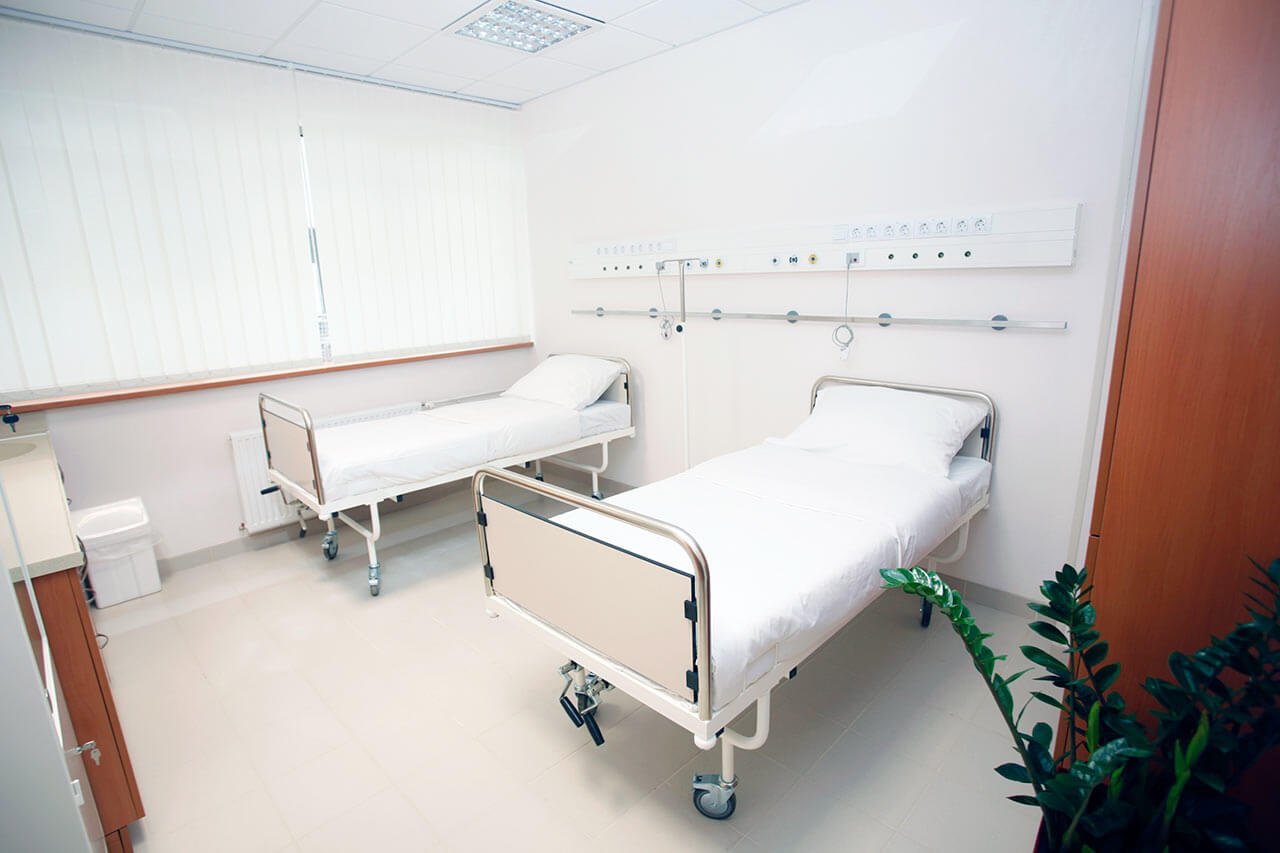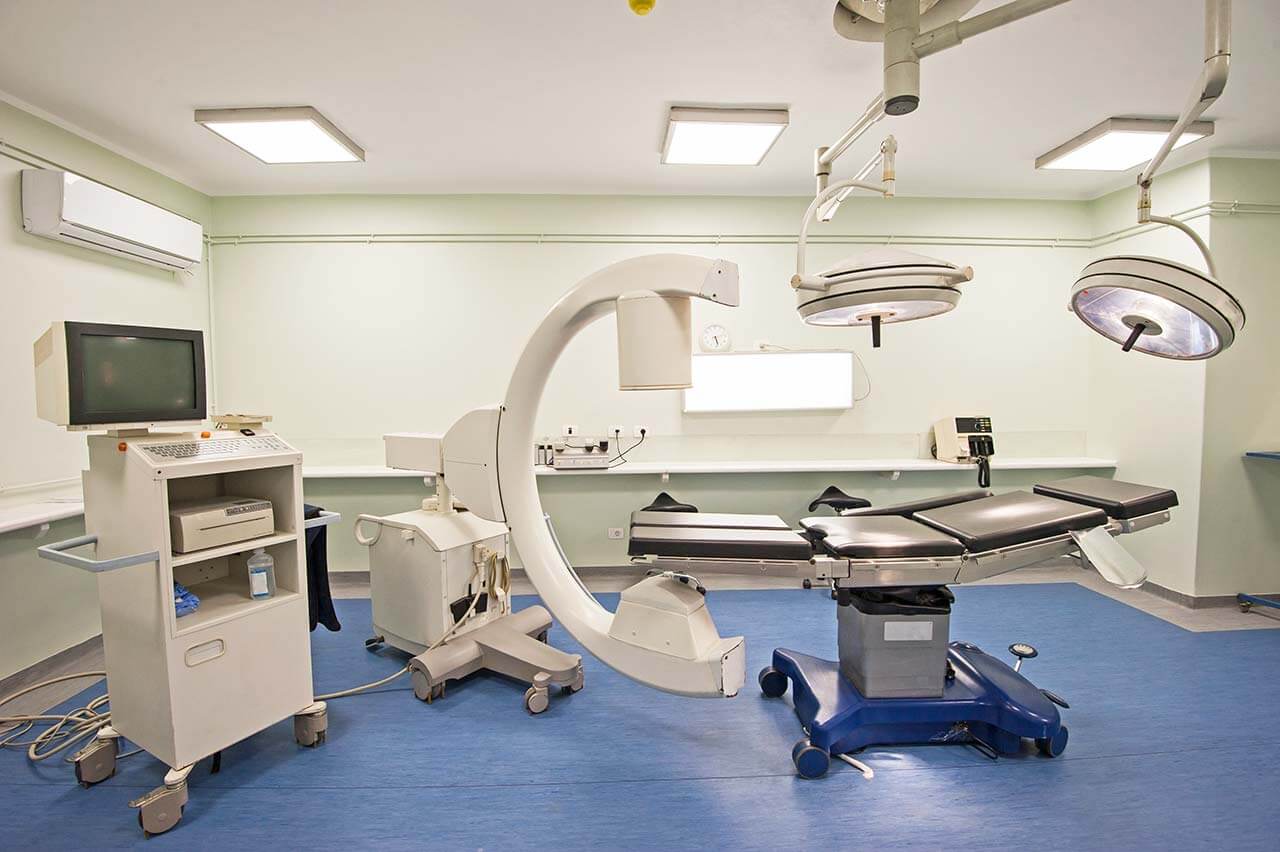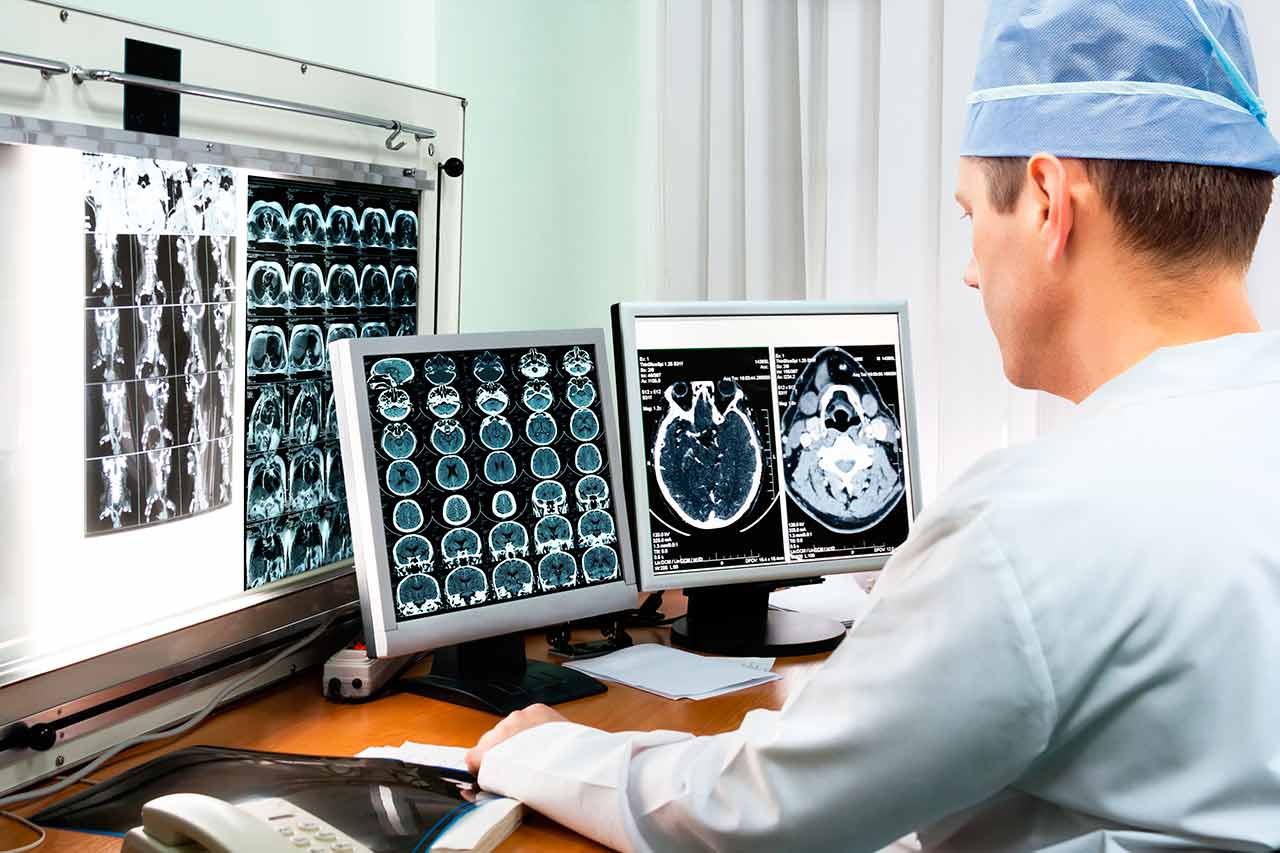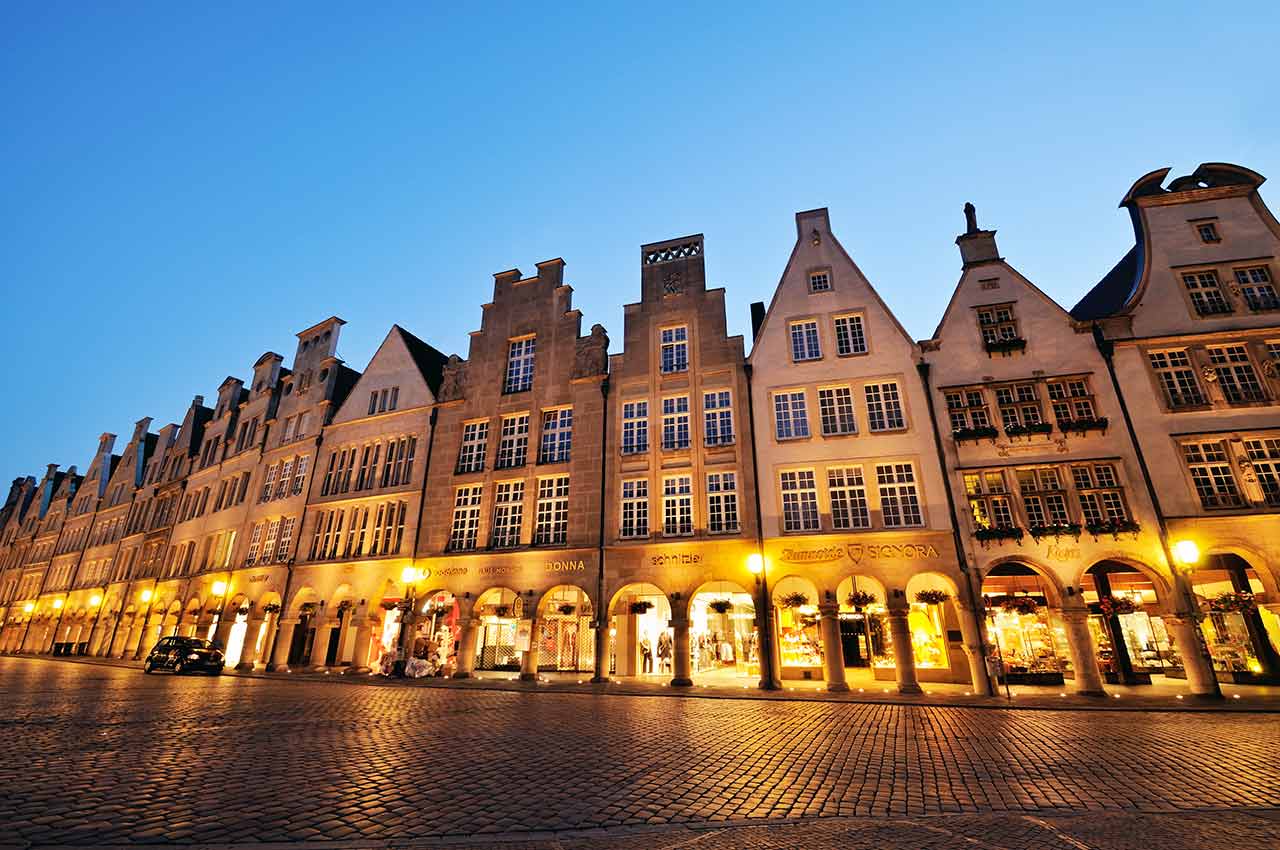
The program includes:
- Initial presentation in the clinic
- clinical history taking
- review of medical records
- physical examination
- X-ray examination of the shoulder
- MRI scan of the shoulder (on indication 1200 €)
- nursing services
- consultation of related specialists
- consultation all leading experts
- development of individual treatment plan
Required documents
- Medical records
- X-ray examination, MRI/CT scan (if available)
Service
You may also book:
 BookingHealth Price from:
BookingHealth Price from:
About the department
According to Focus magazine, the Department of Adult and Pediatric Traumatology, Hand and Reconstructive Surgery at the University Hospital Muenster ranks among the top German medical facilities specializing in the treatment of injuries!
The department offers the full range of treatment for patients injured due to an accident, as well as the treatment of all musculoskeletal diseases and reconstructive interventions. The clinical practice is based on the use of only the most modern therapeutic techniques, adapted to the individual needs of each patient. The department is headed by Prof. Dr. med. Michael Johannes Raschke.
The priority goal of the entire medical team of the department is the best possible recovery of the patient’s mobility and the assurance of a high quality of life. The department is the Interregional Level I Maximum Care Trauma Center. It performs more than 3,600 inpatient and about 800 outpatient interventions annually. In total, the department has 91 beds, 80 of them are in the ordinary department, whereas 11 beds are in the Intensive Care Unit. Thus, the department provides round-the-clock, highly efficient and qualified treatment of patients with mild and severe injuries.
It should be noted that the department employs specially trained medical specialists with unique experience in the treatment of injuries in children. The pediatric traumatologists are well aware that children are not small adults, and their treatment requires a different approach. For example, fractures in children heal much faster, and often they do not require surgical intervention. However, depending on the age and injury, child-specific risks may occur, such as improper healing of bones or functional limitations. Consequently, the department's doctors devote much time to comprehensive consultations for young patients and their parents. Should a child need the surgical treatment, there will be used minimally invasive techniques adapted to the growing skeleton of the child.
The service range of the department includes:
- Diagnostics and treatment of injuries of any severity in adults and children
- Diagnostics and treatment of industrial injuries, injuries resulting from accidents at school and kindergarten
- Hand surgery and microsurgery
- Hand infections
- Aseptic bone necrosis
- Hand joint arthrosis
- Rheumatic hand changes
- Benign and malignant hand tumors
- Vascular changes in the hand
- Compression syndromes of the nerve endings
- Carpal tunnel syndrome
- Cubital tunnel syndrome
- Guyon's canal syndrome
- Tendon sheath stenosis
- Dupuytren's contracture
- Congenital hand malformations
- Epidermolysis bullosa
- Diagnostics and treatment of sports injuries
- Cruciate ligament surgery
- Meniscus surgery
- Patellar surgery
- Shoulder surgery
- Humeral head fracture
- Shoulder replacement surgery
- Shoulder instability (dislocation)
- Rotator cuff tear
- Clavicle and shoulder injuries
- Reconstructive surgical interventions, including reconstructive microsurgery
- Diagnostics and treatment of pelvic injuries
- Short-term conservative stabilization with aids
- External fixation with external fixing devices
- Internal stabilization with minimally invasive interventions
- Percutaneous procedures (1-2 cm incision)
- Interventions using navigation surgery
- Diagnostics and treatment of complicated fractures in pseudarthrosis, osteomyelitis, bone tissue defects
- Growth factor stimulation for bone healing
- Extracorporeal, focused shock wave therapy (sparing treatment)
- Individualized treatment using biologically active implants
- Diagnostics and treatment of injuries in elderly patients
- Hip fracture
- Osteosynthesis
- Total and partial joint replacement surgery
- Osteoporosis
- Periprosthetic fractures
- Hip fracture
- Total and partial shoulder, elbow, wrist, hip, knee, ankle, finger endoprosthetics
- Spinal surgery
- Acute spinal injuries
- Thoracic spinal injuries
- Cervical spine injuries
- Thoracic and lumbar spine injuries
- Osteoporotic vertebral fractures
- Posttraumatic corrective interventions
- Minimally invasive spinal surgery
- Surgical navigation
- Pain therapy
- Foot and ankle surgery
- Foot and ankle injuries
- Bone injuries of the ankle and the entire foot, including reconstructive interventions in complex injuries with damages to soft tissues, tendons of the ankle and foot
- Ankle cartilage lesions (cartilage, bone and chondrocyte transplantation)
- Acute and chronic injuries of the ankle and foot ligaments
- Posttraumatic, congenital and degenerative malformations of the ankle and foot
- Transverse flatfoot, hollow foot, posttraumatic disorders of the ankle and foot
- Forefoot deformities (hallux valgus, deformities of the fifth digit of the foot)
- Foot and ankle arthrosis
- Foot and ankle tendon lesions
- Inflammatory lesions of the tendons
- Chronic tendon ruptures, tendon dislocation in posttraumatic transverse flatfoot
- Foot and ankle nerve injuries
- Surgical navigation and 3D intraoperative imaging
- Other medical services
Curriculum vitae
- 1979 -1985 Study of Medicine, Johannes Gutenberg University of Mainz and Lübeck Medical School.
- 1987 Doctoral Degree at the Faculty of Clinical Medicine, Institute of Biochemical Endocrinology at the Medical University of Lübeck
- 1997 Habilitation and Venia Legendi in Surgery, Humboldt University of Berlin.
- 1999 - 2003 Leading Senior Physician, Deputy Head of the Department.
- 2003 Extraordinary Professor of the Faculty of Medicine, Humboldt University of Berlin, Charité Campus Virchow Clinic.
- Since August 2003 Head of the Department of Adult and Pediatric Traumatology, Hand and Reconstructive Surgery at the University Hospital Muenster.
Specialization
- 1994 Board certification in Surgery, Berlin Medical Association.
- 1998 Board certification in Urgent Surgery, Berlin Medical Association.
- 2002 Additional qualification in Hand Surgery, Berlin Medical Association.
- 2005 Board certification in Orthopedics and Trauma Surgery, Medical Association of Westphalia-Lippe.
- 2005 Additional qualification in Special Urgent Surgery, Medical Association of Westphalia-Lippe.
Membership in Scientific Societies
- Since May 2003 Head of the Working Association "Geriatric Traumatology" of the German Trauma Society.
- Since 2012 Board Member of the German Knee Society.
- 2013 - 2018, President of the AOTrauma Germany.
The scientific focuses of Prof. Raschke include the improvement of fracture healing by growth factors and growth hormone, implant innovations, different methods of callus distraction and polytrauma care. He is a member of numerous scientific associations as well as author and publisher of important medical publications.
Photo of the doctor: (c) Universitätsklinikum Münster
About hospital
According to the Focus magazine, the University Hospital Muenster ranks among the top German hospitals!
The hospital belongs to the most prestigious medical institutions in Germany. The hospital is distinguished by a high professionalism of its doctors, state-of-the-art technological equipment and the availability of the most advanced diagnostic and therapeutic capabilities ensuring the first-class medical services. The hospital integrates more than 30 specialized departments, as well as numerous institutes and centers, thus representing all the specialties of modern medicine. The hospital treats more than 64,000 inpatients and 500,000 outpatients every year, which is an indisputable evidence of the highest quality of medical services.
The medical team of the hospital, consisting of more than 10,000 employers, is committed to preserving the physical health of patients, providing them with psychological support and compassionate attitude throughout the entire therapeutic process.
The hospital has succeeded in all specialties of medicine, however, main areas of its specialization include oncology, treatment of cardiovascular, neurological diseases, transplant medicine, psychiatry and psychosomatics, pediatrics with a special focus on rare diseases in children, traumatology, orthopedics, prenatal medicine, and reproductive medicine. In addition, key importance is given to scientific research and training of medical students, so that the specialists of the hospital make a momentous contribution to the development of medicine as a whole.
Photo: (с) depositphotos
Accommodation in hospital
Patients rooms
The patients of the University Hospital Muenster live in single or double rooms. The rooms are made in bright colors and modern design. Each room has an ensuite bathroom with shower and toilet. The standard room includes an automatically adjustable bed, a bedside table, a table and chairs for receiving visitors, a telephone and a TV. The hospital offers access to the Internet. If desired, the patient can also stay in the enhanced-comfort room.
Meals and Menus
The patients of the hospital are offered a tasty and balanced three meals a day: breakfast, lunch and dinner. The menu always features diet and vegetarian dishes. If for any reason you do not eat all the food, you will be provided with an individual menu. Please inform the medical staff about your dietary preferences prior to the treatment.
Further details
Standard rooms include:
Religion
Religious services are available upon request.
Accompanying person
During the inpatient program, an accompanying person may stay with you in a room or at the hotel of your choice.
Hotel
During the outpatient program, you can live at a hotel of your choice. Managers will help you to choose the most suitable options.
The hospital offers a full range of laboratory tests (general, hormonal, tests for infections, antibodies, tumor markers, etc.), genetic tests, various modifications of ultrasound scans, CT scans, MRI and PET / CT, angiography, myelography, biopsy and other examinations. Treatment with medications, endoscopic and robotic operations, stereotaxic interventions is carried out here, modern types of radiation therapy are also used. The hospital offers patients all the necessary therapeutic techniques.
- Stereotactic radiotherapy, including intracranial one
- Thulium and holmium laser enucleation of the prostate
- HIPEC for peritoneal cancer
- Imlantation of mechanical heart support systems
- Assisted reproductive technologies
These are arthrosis and sports injuries of the joints, benign neoplasms and malignant tumors of various localizations, spinal injuries, osteoporosis, benign prostatic hyperplasia, urolithiasis, inflammatory bowel disease and other pathologies.
- Traumatology and hand surgery
- Urology
- General and abdominal surgery
- Cardiology and cardiac surgery
- Obstetrics and gynecology
The hospital's team consists of more than 10,000 highly qualified employees.






